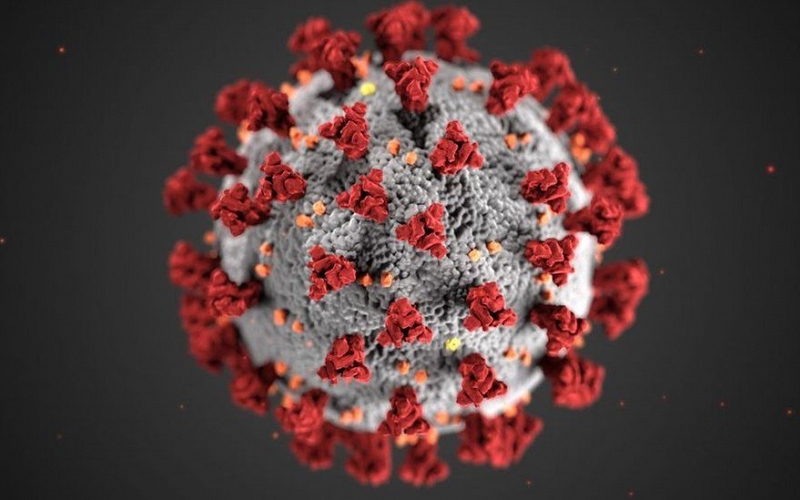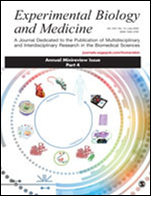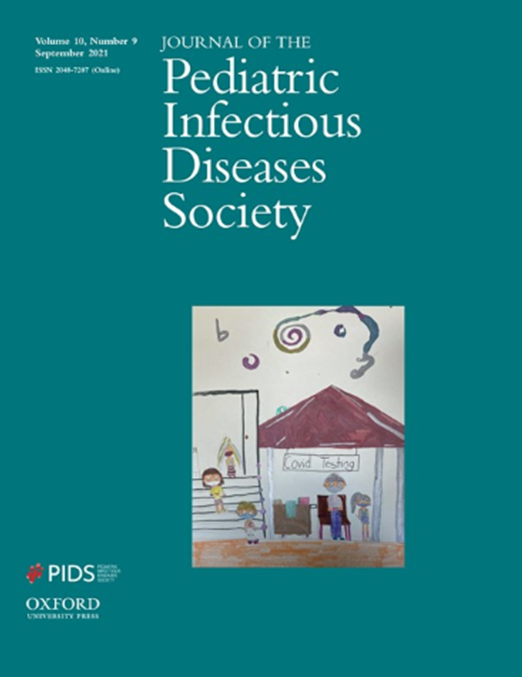Research News: COVID-19 & MIS-C

In the past year and a half, CCIV led the nation in SARS-CoV-2 research throughout the COVID-19 pandemic. A key component of that has been research on Multisystem Inflammatory Syndrome in Children (MIS-C).
MIS-C often results in PICU admission, with complications including myocarditis, cardiorespiratory failure, and death. Currently, MIS-C is thought to be a postinfectious response to SARS-CoV-2. Moreover, MIS-C often affects previously healthy children who have no underlying comorbidities, resulting in a growing number of COVID-19-related PICU admissions.
Being able to more quickly identify severe COVID-19 and MIS-C cases would help lead to improved patient care. Key advances in our understanding MIS-C, as it arises from COVID-19, come from CCIV researchers.
In Fall 2020, Dr. Christina Rostad started a Pediatric Research Alliance pilot grant investigating the relationship between COVID-19 and MIS-C. This pilot grant quickly led to additional funding on MIS-C with emphases on clinical phenotypes and biomarker identification.
One such award is the NIH funded PreVAIL study with PI Dr. Charles Chiu (UCSF). This study works to discover and validate predictive host biomarkers of pediatric COVID-19 and MIS-C severity using RNA sequencing and cell-free DNA methylation profiling. PreVAIL plans to apply machine learning-based classification strategies to generate diagnostic and predictive models of disease severity. Dr. Rostad is also part of a CDC MIS-C Phenotype Initiative Study and Extension. This study evaluates the longitudinal outcomes of children hospitalized with MIS-C vs. COVID-19. The study will also assess the acceptance, uptake, safety, reactogenicity, and immune responses to COVID-19 vaccination in children with a history of MIS-C.
Dr. Rostad said, “the most rewarding aspect of our MIS-C research over the past year has been the opportunity to collaborate with investigators across the university and the country to improve our understanding of this novel condition and our approach to caring for children.”
Such collaborations led several teams that included CCIV researchers to identify two MIS-C inflammatory biomarkers: secretory phospholipase 2 and plasma osteopontin. Previously, no evidence existed for a biomarker, a molecular indicator of disease severity enabling accurate treatment from onset, for COVID-19 positive children or MIS-C.
Partnering with Emory’s Pediatric Neurotrauma Lab and the Center for Clinical and Translational Research, investigators discovered that these inflammatory biomarkers typically identified in relation to Kawasaki disease or traumatic brain injuries respectively, were also elevated in SARS-CoV-2 positive and MIS-C patients. Findings from these studies were both published in Experimental Biology and Medicine.
 The first study, published in July 2021, was funded by the Wilbur and Hilda Glenn Family Foundation, Michael and Natalie Beinenson, the Woodruff Health Sciences Center Synergy Award, and an Emory COVID-19 Cure award. The study led Children's and Emory researchers to conclude that secretory phospholipase 2 may be a potential biomarker of COVID-19 severity and MIS-C in children. The second study, published in September 2021 was funded by the Elaine and John C. Carlos Chair Fund and a grant from the National Institutes of Health (NIH). This study identified that plasma osteopontin may also be a biomarker.
The first study, published in July 2021, was funded by the Wilbur and Hilda Glenn Family Foundation, Michael and Natalie Beinenson, the Woodruff Health Sciences Center Synergy Award, and an Emory COVID-19 Cure award. The study led Children's and Emory researchers to conclude that secretory phospholipase 2 may be a potential biomarker of COVID-19 severity and MIS-C in children. The second study, published in September 2021 was funded by the Elaine and John C. Carlos Chair Fund and a grant from the National Institutes of Health (NIH). This study identified that plasma osteopontin may also be a biomarker.
CCIV investigators also collaborated with other pediatric divisions, especially Cardiology, to uncover a greater understanding of MIS-C. Dr. Preeti Jaggi (right) has been a key player in much of this collaborative effort.
Through collaborations with Dr. Matt Oster in the Division of Cardiology, Dr. Jaggi helped to study symptomatic acute myocarditis and giant coronary aneurysms associated with MIS-C and COVID-19 patients.

Key findings from these studies focused on potential symptoms of MIS-C that could contribute to diagnostic efforts. For instance, a study in Journal of the Pediatric Infectious Diseases Society found that 28% of MIS-C patients experienced neck pain and other symptoms affecting the ear, nose, and throat. As a result, the team proposed that neck pain could be a distinct clinical observation associated with a MIS-C diagnoses.
The ongoing COVID-19 pandemic means that treatment for MIS-C is also evolving as more is learned about the condition. While larger follow-up studies are still needed, these discoveries open the door to the more timely diagnoses for pediatric patients, as well as the development of new and more effective treatments.§